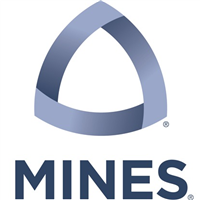What do they do?
Research, design, develop, or test electronic components and systems for commercial, industrial, military, or scientific use employing knowledge of electronic theory and materials properties. Design electronic circuits and components for use in fields such as telecommunications, aerospace guidance and propulsion control, acoustics, or instruments and controls.
Also known as:
Antenna Engineer, Compatibility Test Engineer, Design Engineer, Electronic Design Automation Engineer (EDA Engineer), Electronics Design Engineer, Engineer, Equipment Engineer, Evaluation Engineer, Integrated Circuit Design Engineer (IC Design Engineer), Product Engineer, Radio Frequency Engineer (RF Engineer), Research and Development Engineer (R and D Engineer), Test Engineer
-
5%
Change
Ranks #44 in job growth rate280Job Openings
Ranks #14 in net job growth
-
Carnegie Mellon University
Pittsburgh, PA
-
Rensselaer Polytechnic Institute
Troy, NY
-
Colorado School of Mines
Golden, CO
-
University of California-Berkeley
Berkeley, CA
-
University of Michigan-Dearborn
Dearborn, MI
Looking for colleges that offer a specific major? Use the College Match Tool to find your best-matched schools and discover your estimated Net Price!
- Doctorate or Professional Degree (7%)
- Master's degree (26%)
- Bachelor's degree (50%)
- Associate's degree (6%)
- Some college, no degree (6%)
- High school diploma equivalent (3%)
- Less than high school diploma (<1%)
People in this career often have these skills:
- Reading Comprehension - Understanding written sentences and paragraphs in work-related documents.
- Critical Thinking - Using logic and reasoning to identify the strengths and weaknesses of alternative solutions, conclusions, or approaches to problems.
- Complex Problem Solving - Identifying complex problems and reviewing related information to develop and evaluate options and implement solutions.
- Speaking - Talking to others to convey information effectively.
- Active Listening - Giving full attention to what other people are saying, taking time to understand the points being made, asking questions as appropriate, and not interrupting at inappropriate times.
- Judgment and Decision Making - Considering the relative costs and benefits of potential actions to choose the most appropriate one.
- Systems Analysis - Determining how a system should work and how changes in conditions, operations, and the environment will affect outcomes.
- Writing - Communicating effectively in writing as appropriate for the needs of the audience.
- Mathematics - Using mathematics to solve problems.
- Monitoring - Monitoring/Assessing performance of yourself, other individuals, or organizations to make improvements or take corrective action.
- Systems Evaluation - Identifying measures or indicators of system performance and the actions needed to improve or correct performance, relative to the goals of the system.
People in this career often know a lot about:
- Engineering and Technology - Knowledge of the practical application of engineering science and technology. This includes applying principles, techniques, procedures, and equipment to the design and production of various goods and services.
- Computers and Electronics - Knowledge of circuit boards, processors, chips, electronic equipment, and computer hardware and software, including applications and programming.
- Design - Knowledge of design techniques, tools, and principles involved in production of precision technical plans, blueprints, drawings, and models.
- Mathematics - Knowledge of arithmetic, algebra, geometry, calculus, statistics, and their applications.
- English Language - Knowledge of the structure and content of the English language including the meaning and spelling of words, rules of composition, and grammar.
People in this career often have talent in:
- Oral Comprehension - The ability to listen to and understand information and ideas presented through spoken words and sentences.
- Written Comprehension - The ability to read and understand information and ideas presented in writing.
- Oral Expression - The ability to communicate information and ideas in speaking so others will understand.
- Deductive Reasoning - The ability to apply general rules to specific problems to produce answers that make sense.
- Inductive Reasoning - The ability to combine pieces of information to form general rules or conclusions (includes finding a relationship among seemingly unrelated events).
- Information Ordering - The ability to arrange things or actions in a certain order or pattern according to a specific rule or set of rules (e.g., patterns of numbers, letters, words, pictures, mathematical operations).
- Near Vision - The ability to see details at close range (within a few feet of the observer).
- Written Expression - The ability to communicate information and ideas in writing so others will understand.
- Problem Sensitivity - The ability to tell when something is wrong or is likely to go wrong. It does not involve solving the problem, only recognizing that there is a problem.
- Mathematical Reasoning - The ability to choose the right mathematical methods or formulas to solve a problem.
- Fluency of Ideas - The ability to come up with a number of ideas about a topic (the number of ideas is important, not their quality, correctness, or creativity).
- Category Flexibility - The ability to generate or use different sets of rules for combining or grouping things in different ways.
- Originality - The ability to come up with unusual or clever ideas about a given topic or situation, or to develop creative ways to solve a problem.
- Visualization - The ability to imagine how something will look after it is moved around or when its parts are moved or rearranged.
People in this career often do these activities:
- Design electronic or computer equipment or instrumentation.
- Operate computer systems.
- Evaluate characteristics of equipment or systems.
- Direct industrial production activities.
- Confer with technical personnel to prepare designs or operational plans.
- Communicate technical information to suppliers, contractors, or regulatory agencies.
- Discuss designs or plans with clients.
- Advise customers on the use of products or services.
- Provide technical guidance to other personnel.
- Recommend technical design or process changes to improve efficiency, quality, or performance.
- Document technical design details.
- Determine operational criteria or specifications.
- Test products for functionality or quality.
- Analyze design requirements for computer or electronics systems.
- Research design or application of green technologies.
- Schedule operational activities.
- Prepare operational reports.
- Inspect finished products to locate flaws.
- Estimate technical or resource requirements for development or production projects.
- Create schematic drawings for electronics.
- Estimate operational costs.
- Prepare project budgets.
- Explain project details to the general public.
This page includes data from:

 Occupation statistics: USDOL U.S. Bureau of Labor Statistics Occupational Employment Statistics
Occupation statistics: USDOL U.S. Bureau of Labor Statistics Occupational Employment Statistics









